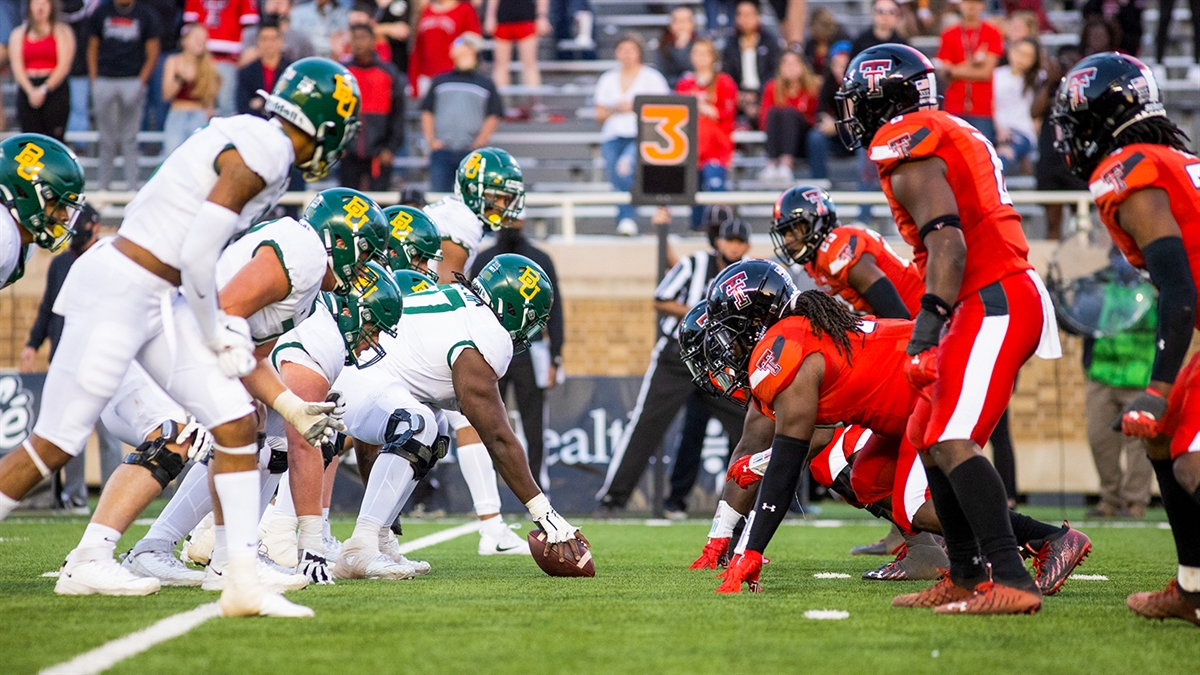I still remember being a student reporter at Baylor back in 2014 when the first College Football Playoff final ranking came out. The weeping and knashing of teeth in the Waco community was overwhelming when the No. 4 graphic flipped and Ohio State’s name was on it.
While dropping one spot out of any tournament will always be frustrating, it hurt for Baylor – and TCU – fans a little extra. The opportunity for the “have-nots” of college football to play for a national championship is exceedingly rare. This was Baylor’s chance. It didn’t happen. It probably won’t ever happen.
In the years since, the frustration of that moment has only grown in the Baylor community. The blue blood members of the sport are pulling away from the field. Seven of the top nine teams in the 2020 College Football Playoff rankings rank top 10 in program revenue. The only program outside the top 10 in revenue to even compete for a title is Clemson.
And in many ways, that culminated on Monday when Texas officially notified the Big 12 that it would not renew its grant of rights. What has long been rumored is official. College football is effectively becoming NFL-ized. Those who aren't preordained to rake in billions might as well be the Winnipeg Blue Bombers to Mickey Mouse.
The split is only going to get bigger. The Athletic reported that some administrators believe the SEC could even consider turning itself into a 30-team super league, maybe even with a player union and even salaries. Simply put, the SEC’s endgame could be creating a made-for-TV minor league with the richest brands in the sport. The Big Ten, ACC and Pac-12 might feel okay now. Long term? Even landing on life rafts in those conferences could just be putting off the inevitable.
And for that reason, fans of those left out in the cold by the impending mega-realignment shouldn’t worry about the split. In fact, they should embrace it.
College football isn’t supposed to be just a training ground for the NFL. It’s about the pageantry, dedicated fan bases and traditions that drive the sport. More than anything, it’s about building hyper-local connections to hundreds of communities in a way that 32 NFL teams just can’t.
Many fans actually went to school at these institutions and will forever be tied with their degrees. Others grew up in families that have rooted for these teams for generations. For even more, it's a connection to a specific place – Waco, El Paso, Lubbock – that professional sports simply could never serve. While Twitter and other national outlets have made the sport more national, college football is far more about squabbles between neighbors and coworkers than clashes of titans.
The impending Super League hopes to squash the broadest major sport in the nation under a handful of regional brands, all while tanking the visibility of the rest of the inventory. Honestly, it's a lazy idea that fails to understand so many of the key dynamics that make the sport so popular. If the big brands are ready to sell out, the way for the new outsiders of college football to stand apart is to not buy into the idea at all.
At its core, this sport has never been about the ultimate champion. Before the BCS was created in 1998, the sport didn’t even have a consensus national champion. Hell, most of Alabama’s titles are fake. Instead, great seasons were primarily determined by winning games, beating rivals and capturing conference championships. It's about remembering players you love and tailgating with friends before games you could drive to attend. Decisions should be made with that in mind.
For the Irate Eight, finding a geographical and cultural niche should be the highest goal. A merger involving parts of the Big 12 and AAC could allow Baylor, TCU, Texas Tech, SMU and Houston to all play each other for supremacy. Their value wouldn’t be felt in national television ratings because the point wouldn’t be to pretend folks in Wyoming care. It would be felt at the state’s water coolers, in church pews and at barbecues, where sports are actually supposed to matter. That drives engagement with the athletic brands, and eventually the academic brands too.
If it's in the "Big 12," great. If it's in "The American," great. Really and truly, who cares. It's a dang athletic conference. The only thing that would cripple these teams is fans and alumni buying into the lie that their football suddenly doesn't mater.
We can state the obvious. A league built around what’s good for Texas college football would lag financially far behind the Super League. It might be relegated to ESPN2, ESPN+ or other new streaming platforms like Apple or Amazon. The financial gap would widen dramatically.
I mean this very sincerely: Unless you’re collecting disbursement checks or working as an accountant, you don’t have to care. As long as your teams’ games are televised and readily accessible – which is a relative certainty given in the modern TV landscape – you don’t have to pay attention to television ratings or conference payouts or grant of rights. You don't have to listen to what national networks tell you is important.
All you need to care about is whether your team – and your rivals – are playing the most entertaining football games possible. That's what this is all supposed to be about is entertainment. If Arkansas fans want to brag about going 2-10 for a whole lot of money, take their trash talk to Goldman Sachs. It’s strange that fans still have arguments about money that none of us are making. Let administrators worry about that.
Sure, getting an elusive Pac-12 invitation is a way to maintain massive revenues that will generally have been wasted on arms races of obscene coaching salaries and unnecessary facility developments. If the SEC decides to consolidate even more though, those yearly trips to Pullman and Corvallis sure won't be worth the time for ruining student experience and making your fanbase's job impossible.
I get it, the dream of winning an FBS national championship is the pinnacle of college athletics’ signature sport. Falling out of that world is unfortunate. That said, lamenting the disappearance of a path that barely existed isn’t worth any of your valuable breath. If you’re a diehard fan of Indiana, or Houston, or UTSA or UTEP, you don’t have to ask yourself that question. It’s like comparing houses with Jeff Bezos – why do you have to care? You don’t need what he has to be happy.
Instead, remember how TCU walked through 15 years of being a "non-power" team. They created an elite, innovative product that both players and fans wanted to join. Ultimately, their status as a "non-power" team prevented them from playing for deserved national championships. Quite literally three years into the Big 12, TCU was left out of the College Football Playoff. Then in 2017, 10-win TCU was left out of the New Year's Six.
Even as a power conference team, TCU has continued to get screwed for not being a big brand. However, the biggest benefit was easy: They got to play historic regional rivals like Texas, Baylor and Texas Tech. That side of things doesn't have to go away. It's not your job as a fan to care about how well television networks line their pockets.
Taking it back to my time at Baylor, my favorite moment in my limited time as a fan before turning media was not competing for a national championship. Honestly, that was stressful and barely any fun at all. Instead, it was standing out in the 20-degree cold for six hours to watch Baylor play a completely irrelevant Texas team with the school's first ever Big 12 title on the line. It's the moments that draw you in, not the financial bureaucracy behind them.
What makes this an unparalleled sport is its breadth. Let the SEC Super League focus on selling out. The rest of the field can focus on what really matters: college football.
This article is available to our Digital Subscribers.
Click "Subscribe Now" to see a list of subscription offers.
Already a Subscriber? Sign In to access this content.


